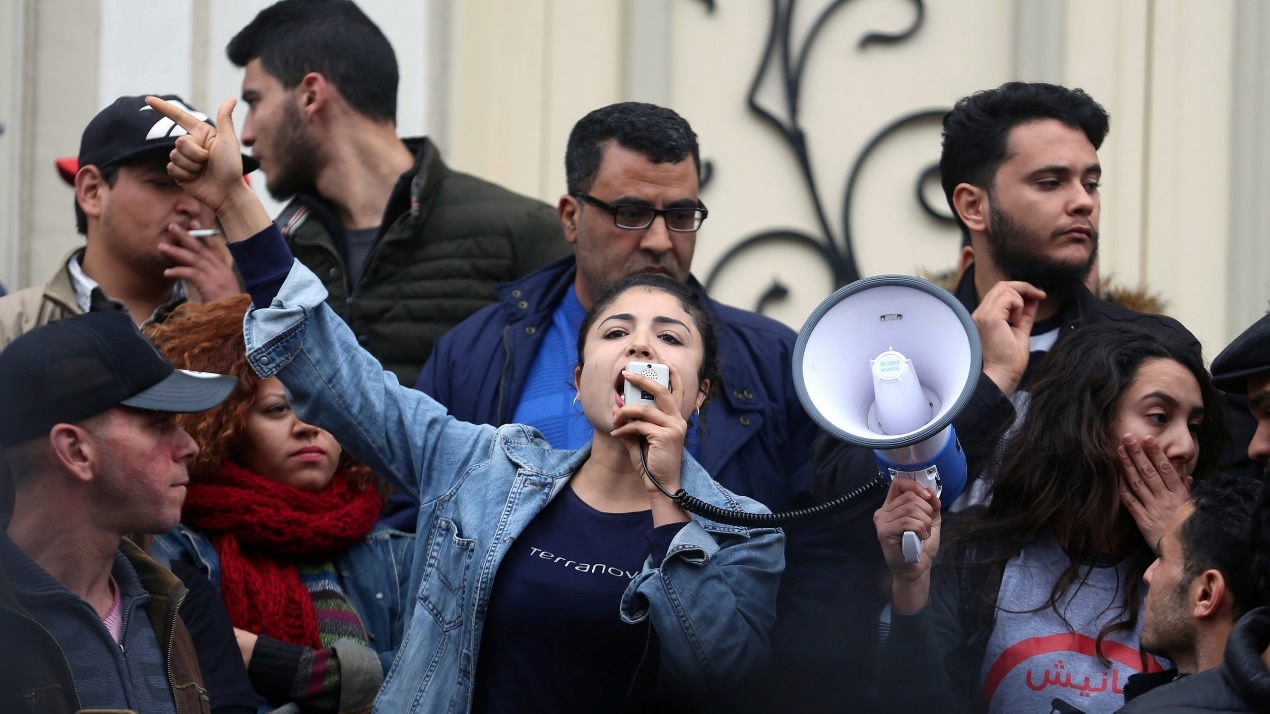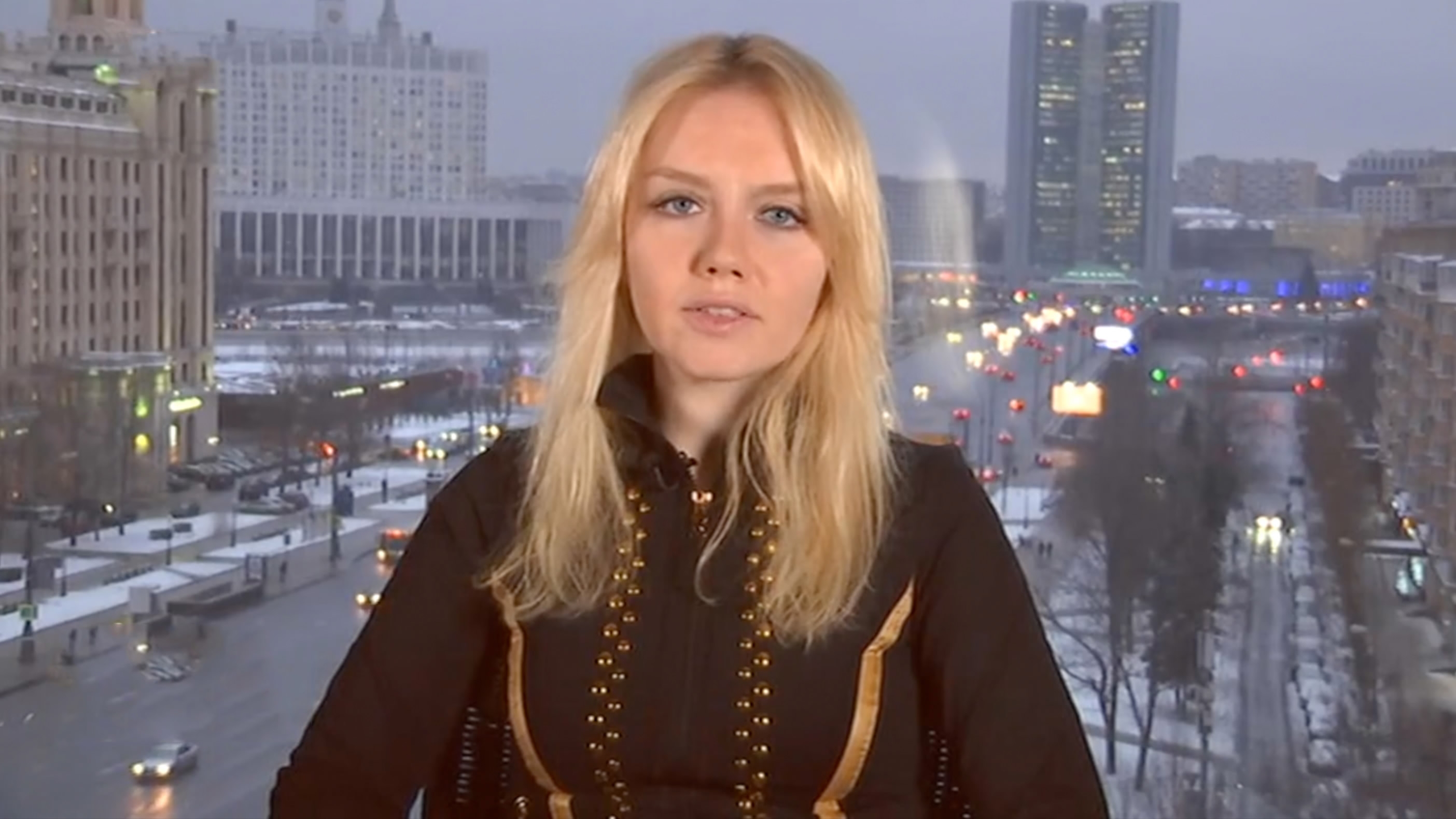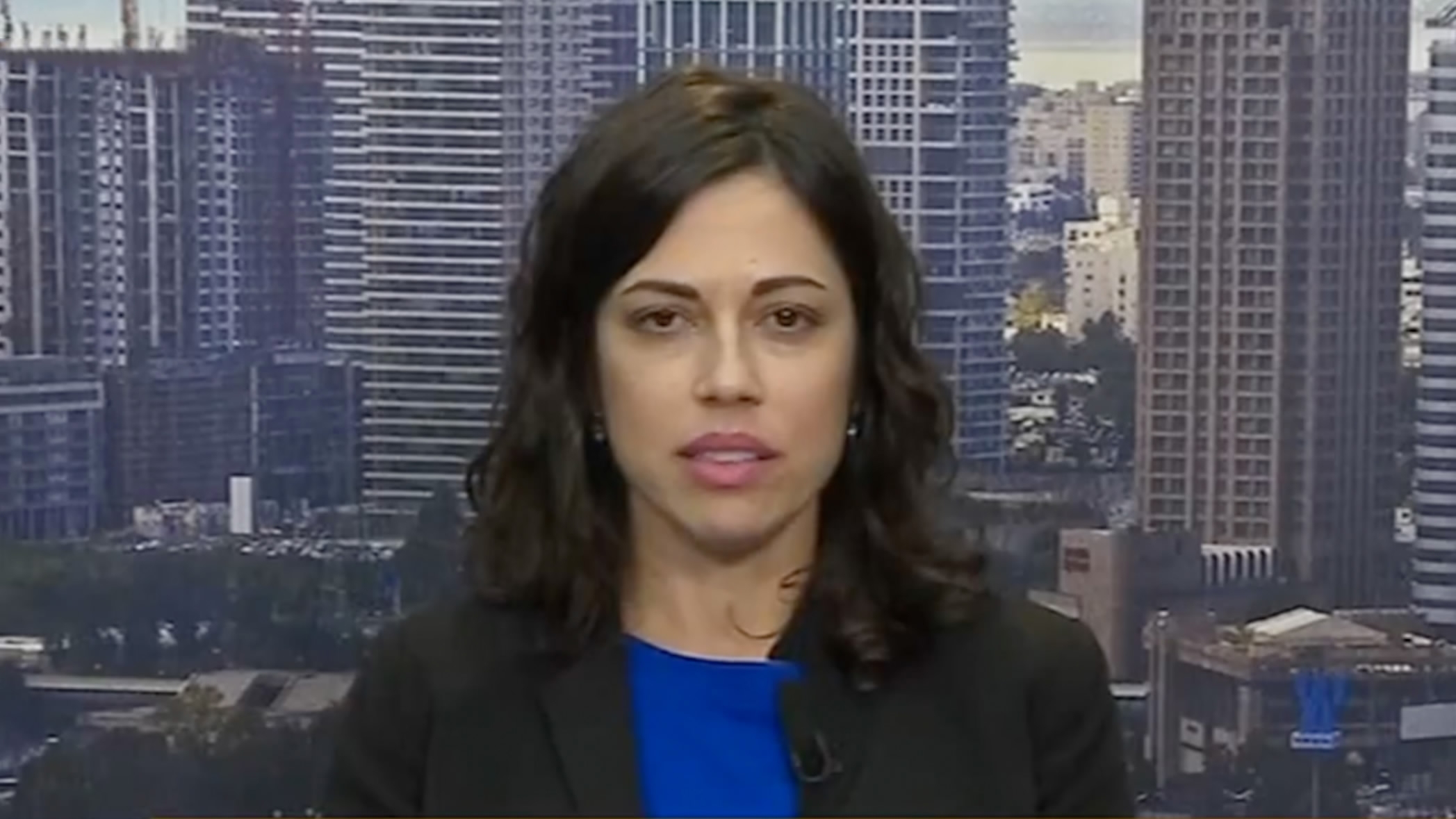
Politics
20:14, 17-Jan-2018
Protests in Tunisia: gov’t security control vs. lack of political and economic life
CGTN

By CGTN’s The Point
Tunisians on Jan. 14 marked seven years since the uprising that launched the so-called Arab Spring. The North African country had been seen as having had a relatively smooth democratic transition since then. But anger has risen again over austerity measures introduced after a year of rising prices, with protesters chanting the 2011 slogans of "Work, Freedom, Dignity." Maria Al Makahleh, president of the Moscow-based International Middle Eastern Studies Club shared with CGTN’s the Point (@thepointwithlx) her view on the root causes of the protests in Tunisia.
“Speaking of the government, it really has failed to meet the expectations of the Tunisian people… The level of employment in Tunisia is 35 percent. It’s very high and the majority is the youth. Until now, youth find itself totally useless inside their country,” says Al Makahleh.

“We have been witnessing during these years the emergence of a civil society, that people felt their own responsibility for their future, especially among the youth,” Al Makahleh argued. “Nothing has changed in terms of improvement of political and economic life of Tunisia,” she said.
Sarah Feuer, a fellow at the Program on Arab Politics of The Washington Institute for Near East Policy, echoed some of what Al Makahleh said. But on the political front, she said “there has been tremendous progress in the last seven years.” She believed that “what we are seeing now is in a strange way a result of the fact that for those first seven years, the country was busy focusing on political reforms, getting its security situation under control.”
Feuer continues, “To some extent, I think the government was preoccupied with trying to get the security situation under control...and did not have the political will or inclination or in some cases the bandwidth to deal with very serious economic problems.”

Feuer said she would not characterize the protests as an uprising. The proximate cause of these protests were the rising prices resulted from the agreement that Tunisia made with the IMF in exchange for nearly three billion US dollars in loans which the country is in badly need.
“For Tunisia, the [IMF] demands are really very hard to bear, especially taken in the current situation but they have no options,” Al Makahleh acknowledged.
After the protests broke out, the government has already come out trying to indicate that it will try to adopt some measures, giving greater assistance to families living in poverty to try to mitigate the impact of the reforms.
“But there will have to be some serious and fundamental changes to the Tunisian economy,” Feuer said, “What we may be seeing now is the beginning of the attempt to move in that direction. There is no question that it is going to be painful.”
The Point with Liu Xin is a 30-minute current affairs program on CGTN. It airs weekdays at 9.30 p.m. BJT (1330GMT), with rebroadcasts at 5.30 a.m. (2130GMT) and 10.30 a.m. (0230GMT).

SITEMAP
Copyright © 2018 CGTN. Beijing ICP prepared NO.16065310-3
Copyright © 2018 CGTN. Beijing ICP prepared NO.16065310-3